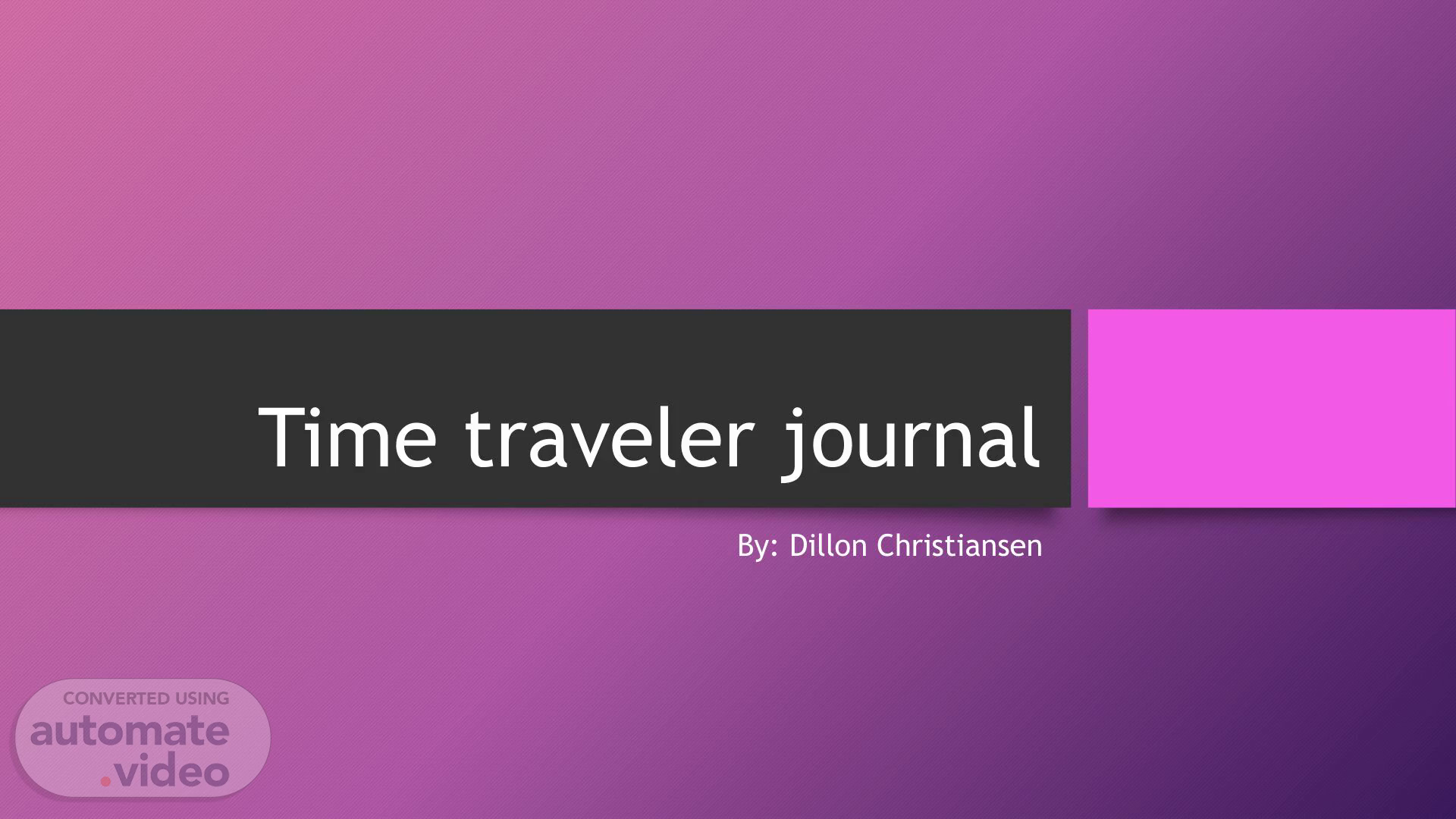Scene 1 (0s)
[Audio] Time traveler journal By: Dillon Christiansen.
Scene 2 (6s)
[Audio] The Middle Ages It was much work, faith, and survival. I lived as a villager working the lands for their lordships and on minimal food existence. Everything in life depended on and was ruled under the teaching of the Church. Everything happened because it was God's plan or wish. The Church comforted us, yet it made us fearful. Worse still was the Black Death in which so many died and we imagined God was trying to punish us. We felt like we didn't know what would happen next. Even now, there was some joy, at least songs, the warmth of the fire, and the celebration of harvests. However, life was mainly survival in hope that someday things would get better..
Scene 3 (52s)
[Audio] Middle ages continued Every day I woke up I didn't know if I would eat that day. As the lords and nobles took all our money in taxes we were left broke and poor. Not only that we were fearful that we could catch the black death. Mariane Antonnitte mocked us as she said "If they cant have bread give them cake.".
Scene 4 (1m 11s)
[Audio] Renaissance The Renaissance could be defined as a transitional age in which ancient learning is rediscovered and human potential asserted. I admired artists like Leonardo da Vinci and Michelangelo caliber because their, art seemed to spring into life. Discoveries by Copernicus and Galileo made for different views challenging the traditional conceptions and giving way to new opportunities. The hold of the Catholic Church was breaking down, new thinkers and patrons were surfacing. It was an age of transition now centered on reason, creativity, and individualism. Individuals began to question the old ways that brought new ideas concerning politics and society. I felt convinced that I was living during a period in history..
Scene 5 (1m 57s)
[Audio] Scientific revolution The Scientific Revolution is the whole renovation of new perspectives regarding the 16th and 17th centuries concerning one's view of the world. It was a revolution because the new scientists such as Copernicus, Galileo, Kepler, and Newton questioned the ancient beliefs with an emphasis on observation and experimentation, using reason instead of depending on tradition or religion. Copernicus proposed the revolution of Earth around the Sun, Galileo provided evidence with the aid of a telescope, while Kepler showed that the planets move in elliptical orbits. To them, Newton added his laws of motion and gravitation and provided a key to a uniform universe. This was somewhat of a pivotal turn of thought that would introduce modern science-characterized by questioning and evidence as a means of determining how the world works setting the pace to be expected in future scientific and technological advancement..
Scene 6 (2m 58s)
[Audio] Absolute Monarchs I am the absolute monarch and the only one in this kingdom, wherein the power vests absolutely in my hands alone. Nothinglaw or decision-ever gets materialized excepting with my consent, and I head a state without responsibility to any other person. My word is law, and I have full command over everything: the army, economy, and also the lives of my people. No questions about my authority are ever made, and I make decisions that pertain to the general aspects relating to my nation's future. I am fully sovereign; hence, I can rule without limitation and command respect and fear..
Scene 7 (3m 43s)
[Audio] Enlightenment As the Enlightenment arrived, I developed this view, that society was guided by reason, science, and individual rights. I feel that people can make progress by means of knowledge and that tradition and religious belief should not be the order of life. It was then that I felt so encouraged, even to question the authoritymonarchies, the church-and to push ideas of freedom, equality, and democracy. The Enlightenment for me acted as a fulcrum point in which humanity really began to feel that progress was possible by harnessing reason and questioning the established structures of authority..
